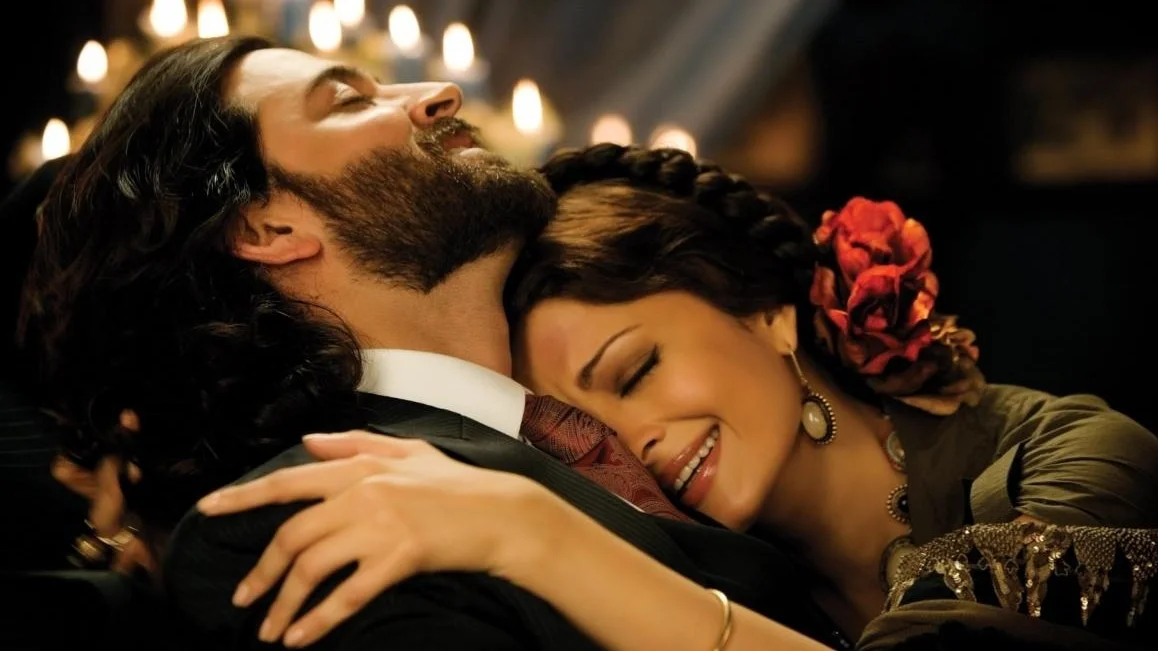Noirvember Files: In a Lonely Place (1950)
There’s no denying classic cinema is inundated with staggering performances from world-renowned Hollywood stars. Big names were plastered across the silver screen in their most iconic roles; Bette Davis in Now, Voyager, Gene Kelly in Singin’ in the Rain, and Humphrey Bogart in Casablanca, to name a few. Casablanca is perhaps the most popular in classic cinema, and some may say that it features Humphrey Bogart’s best role, but there is another contender out there. I happen to believe his best role is in the noir film In a Lonely Place, by director Nicholas Ray.
In a Lonely Place stars Humphrey Bogart as well-known screenwriter, Dixon ‘Dix’ Steele, who is questioned as the prime suspect for the murder of a young woman who was found dead after visiting his home earlier in the night. While Dix is being questioned by police, he starts a relationship with his neighbor who gave him an alibi, Laurel Gray, played by the beautiful Gloria Grahame. As the relationship blooms, Dix continues to wade in hot water as Laurel finds out about Dix’s brute temperament. Dix has a way with his unsentimental attitude and anger that most of the time he cannot hold back. This doesn’t particularly look good to the police, nor does it make Laurel happy about her future decisions with Dix. Inner demons come to the surface and only time can tell if the relationship will last with the looming suspicion of murder in the air.
Nicholas Ray manages to capture everything a noir should display. Detectives parade throughout the film in order to solve the mystery of a murdered hat-check girl. They’re staunch in their beliefs and continue to pressure Dix into releasing any information he knows. Dix shows his melodramatic side, as well as his aggressive side, which pulls the viewer in different directions. It contains a whimsical love between Laurel and Dix that starts out beautiful but continues to be thwarted by frustration and doubt. Confrontation litters the film from beginning to end. All of this is done in a classic black-and-white noir style.

One of the best exchange is when Dix tells Laurel to recite a line that he wants to put in a future novel. The lines read, “I was born when she kissed me. I died when she left me. I lived a few weeks while she loved me.” It perfectly encapsulates loving someone with all your heart and captures the feel of sexual motivations found in a noir film. By the end of the film, Laurel’s response to Dix’s quote will probably break your heart.
Humphrey Bogart has the best role of his acting career here. He makes it look easy, even when he appears disheveled while in the middle of an emotional breakdown. There is a cool, collective, and suave way Bogart sweeps through his scenes. How much he’s believable in the role rivals most on-screen performances. Then there is the ever-stunning Gloria Grahame, who was the wife of director Nicholas Ray at the time. She displays such elegance and grace onscreen. The chemistry between both characters is wonderful, and that has a lot to do with the script, which is filled with witty banter, romantic sentiments, and rage. Another thing that works perfectly is the score. The striking music doesn’t really tell you what could happen next, but it emphasizes what is going on. It certainly ties the ribbon on the whole package.
There is a lot of love to be had for this movie, and it is great to see it in the Criterion Collection. Praise for this film continues to grow on rewatches. If you are looking for a great addition to your film-noir lineup, In A Lonely Place comes highly recommended.
The key to Dan Kwan and Daniel Scheinert’s two magnum opuses.
"Nothing comforts anxiety like a little nostalgia"
How the series ties everything from Bound to The Matrix Resurrections together.
The movies were back (mostly) in 2021 and Callie counts down her favorites, from Annette to Drive My Car!
How the novel by Tarantino lovingly opens up the world presented in the film.
Looking at some films that played at this year’s eclectic fest including Scenes from an Empty Church, Alien On Stage, and We’re All Going to the World’s Fair.
On how the new Netflix special is an effective look at an artist living through the pandemic.
On Martin Scorsese’s female characters and Vera Farmiga’s performance in his 2006 film.
A long, critical look at the greatness of the Saw franchise’s endings.
A personal essay on going back to the movies, and more.
On what the audience expects and what filmmakers deliver in two very distinct, yet similar, films.
The pseudo-major release of Tenet poses a myriad of complex questions about movie going in difficult times.
In her debut for our site, Sarah Fisher explores Jimmy Stewart’s career as he grew from “charming everyman” to Hitchcock’s vision of the “world-weary cynic”.
For his debut on the site, Loafpile dives deep into E.T. the Extra-Terrestrial and the current state of nostalgia-induced sequels.
Aaron looks at the powerful themes in The Last of Us - Part II in this deeply personal piece.
A first-hand experience of CFF’s all-virtual film fest.
The basketball drama from this past year sure did leave its mark.
Two decades later, Mary Harron’s adaptation remains a cutting dig at male masculinity.
A personal deep dive into why the character know as Kylo Ren is an important one.
Dave highlights the best of 2019 that weren’t in the Awards conversation.
From festival favorites to genuine surprises, Rachael highlights her favorite films of 2019.
Callie’s favorite films of the year illustrate just how bold and diverse a year for film 2019 was.
Ten spots weren’t enough for a year featuring films by Martin Scorsese, the Safdies, and Bong Joon-ho.

































